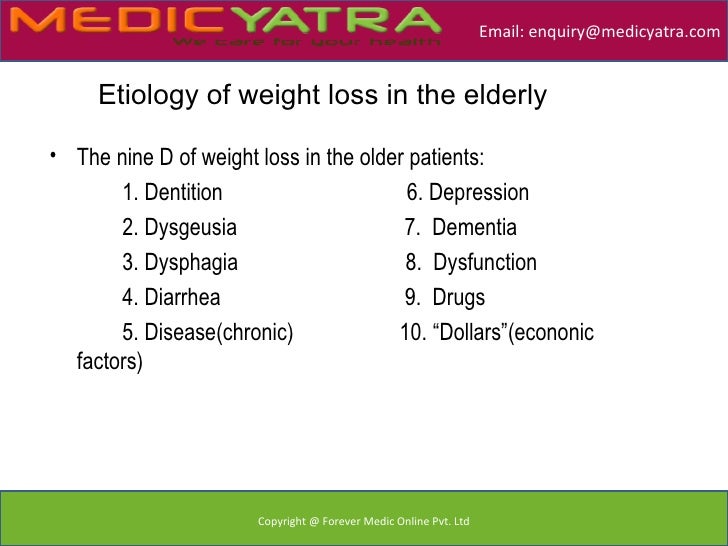Weight Loss In Elderly Workup

Weight loss is common and can be challenging to manage.
Weight loss in elderly workup. Unintentional weight loss in older adults. The leading causes of involuntary weight loss are depression especially in residents of long term care facilities cancer lung and gastrointestinal malignancies cardiac disorders and benign gastrointestinal diseases. American academy of family physicians.
Elderly patients with unintentional weight loss are at higher risk for infection depression and death. Diagnosis and management of weight loss in the elderly. Information from your family doctor.
1 weight loss is a reduction of more than 5 of body weight over 1 month or 10 over 6 months. Unintentional weight loss is often defined as weight loss of at least 5 of the patient s usual body weight that occurs within the preceding 6 to 12 months and that is not the expected consequence of treatment of a known illness. J fam pract 1998 47 19 25.
Unintentional weight loss in older adults. Rather it s a nonspec. It is a diagnostic challenge because while an underlying illness.
2 useful screening questions include asking older patients. Causes of weight loss in residents of long term care facilities may differ from those in ambulatory patients. Failure to thrive in elderly persons is defined by the institute of medicine as weight loss of more than 5 decreased appetite poor nutrition and physical inactivity often associated with dehydration depression immune dysfunction and low cholesterol.
Failure to thrive is not a single disease or medical condition. Quandaries include identifying the problem determining the appropriate workup balancing fear of missing a diagnosis with invasive investigation and effective treatment. Even if there is a leading diagnosis after the initial history and physical exam such a workup is prudent as many patients who present with unintentional weight loss are older and have risk factors for malignancy and cardiovascular disease.

















